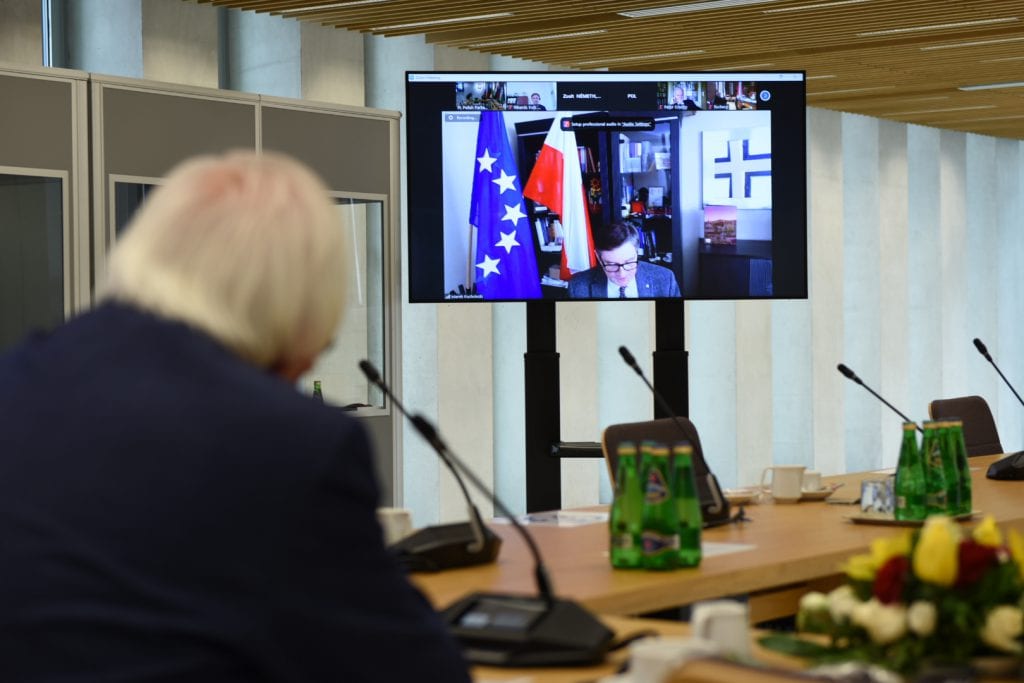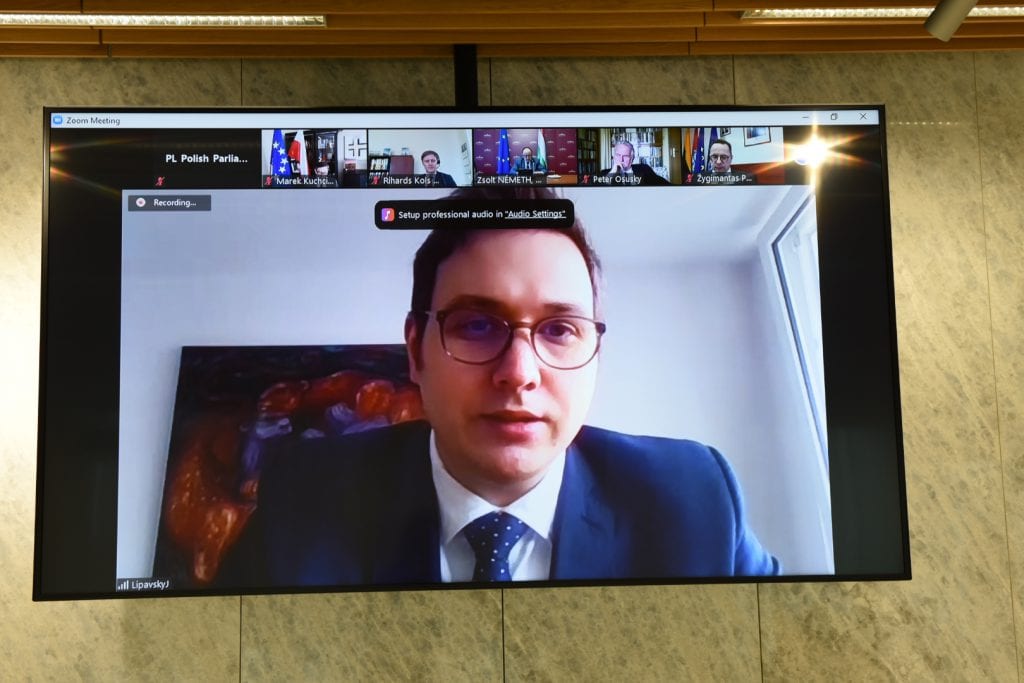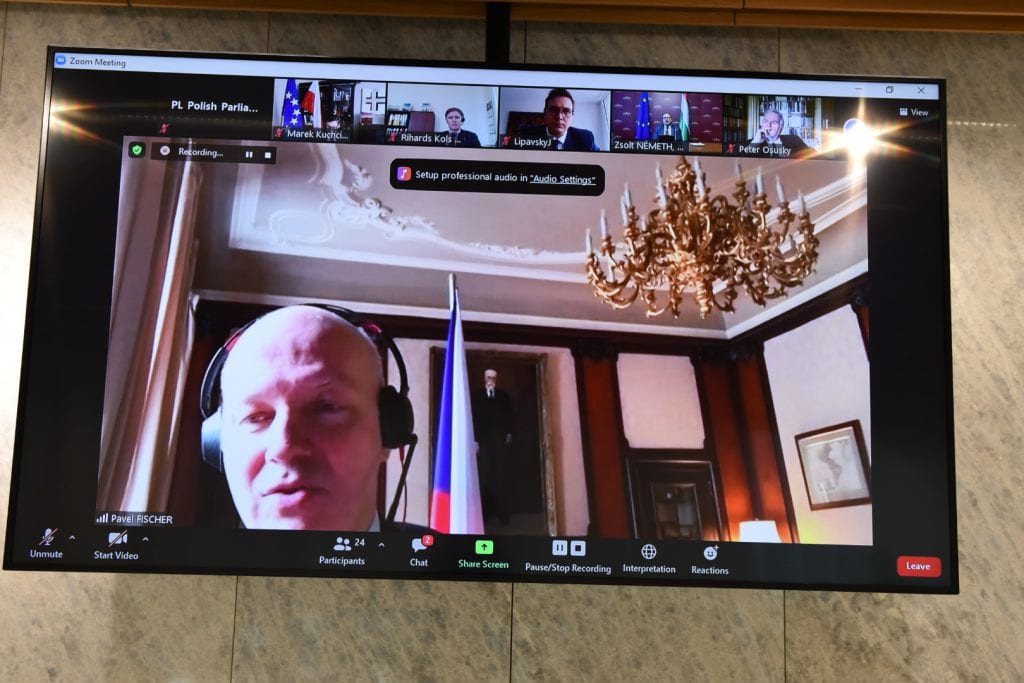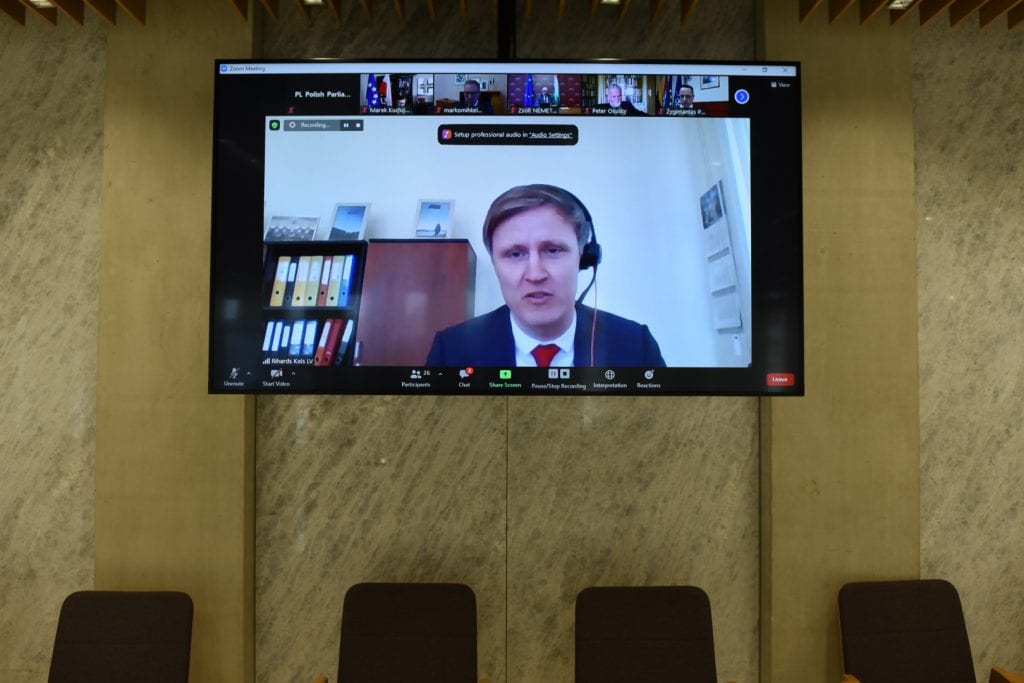The meeting of the chairpersons of the Foreign Affairs Committees of the parliaments of the Visegrad Group countries and the Baltic Trilateral was held on March 29 this year, during which the current epidemic situation in the region, cooperation in the framework of the Trilateral Initiative, as well as the socio-political situation in Belarus were discussed.
During the session on COVID-19, the Chairman of the Foreign Affairs Committee Marek Kuchcinski informed that during the first wave of the pandemic Poland was in a relatively good situation, while the second wave proved more dangerous for the country. He added that due to the record infection rates currently being recorded, the Polish government was forced to introduce strict security rules. President Kuchciński informed that in Poland vaccination started in December last year and that more than 5000 vaccination points are active, where three types of vaccines are used: AstraZeneca, Pfizer and Moderna. He also stressed the importance of countering misinformation about vaccines and strengthening cooperation on medical measures to combat the pandemic.
President Marek Kuchciński highlighted two important elements of regional cooperation based on solidarity. Firstly, he recalled the existence of a virtual Visegrad Information Centre for COVID-19. Secondly, he stressed the importance of joint actions aimed directly at combating the pandemic - admission of COVID-19 patients from other countries - noting that Polish facilities currently receive patients from Slovakia and the Czech Republic.
President Kuchciński encouraged his partners to develop a common position at the EU forum on the effects of the ban on state aid for entrepreneurs. This situation has placed on the shoulders of our governments the obligation to help companies threatened with bankruptcy in the face of an administrative ban on their normal activities (...) Now, more than 50% of state subsidies for private companies throughout the EU are German subsidies for German companies, 18% for French ones, a few percent each for Italian and Dutch ones, while other countries are below 1%. None of the V4 + B3 countries is able to compete on subsidies with the German or French budget - he stressed in a statement.
President Marek Kuchciński encouraged his partners to jointly counter depriving national parliaments of further competences by extra-treaty transferring them to EU institutions under the pretext of the need to coordinate the fight against a pandemic.
During the second part of the meeting dedicated to the Tri-Moor Initiative (IT) and the situation in Belarus, President Marek Kuchciński reminded that on 18 November 2020 House of Representatives of the U.S. Congress unanimously and cross-partisanly passed a resolution supporting the Tri-Morocco Initiative and called for expanding the related cooperation to Ukraine, Moldova and the Western Balkans. Therefore, the President of the SZA proposed that the parliaments of the Visegrad and Baltic States initiate and carry out a unanimous resolution of the parliaments of all the IT countries during the next summit of the Initiative, which will take place in June-July 2021.
President Marek Kuchciński pointed to the Via Carpatia highway as one of the examples of investments within the Tricity. The parliaments of the Visegrad and Baltic states should inspire their governments to complete the project (...) For V4 it is particularly important to complete the section of Via Carpatia that goes through Slovakia, without which it will be impossible to connect the northern Polish-Baltic part of the route with the southern Hungarian-Romanian-Bulgarian-Greek part". - he said.
The efficiency of the transport and communication network and the management of the exchange of goods and services were also raised during the discussion. Following the idea of the Baltic Digital Highway, the construction of the North-South Trans-Carpathian Digital Highway should be considered. Digital infrastructure should connect us - noted President Marek Kuchciński.
Another topic discussed was the situation of the Polish minority and democratic circles, which have long been victims of persecution by the Lukashenko regime in Belarus. All speakers confirmed their support for more decisive reactions to the violations of fundamental rights and civil liberties and their willingness to help independent Belarusian circles. Harassment of the Polish minority was strongly condemned. In the context of regional cooperation in the face of destabilizing forces in the East, the topic of the Nord Stream 2 gas pipeline was brought up. It was deemed to be a project that sabotages the efforts of the Trilateral countries to free the Eastern flank of the EU from dependency on Russian gas.
During the conclusion of the meeting, the participants considered it appropriate to send a letter to the U.S. House of Representatives with regard to the resolution adopted by the House in November last year supporting the Tri-Portuguese initiative to build modern infrastructure in Central Europe. It was suggested that U.S. representatives be invited to the next Tri-Portuguese meeting in order to strengthen U.S. commitment to the initiative.
SM
Photo: Anna Strzyżak/ Chancellery of the Sejm






